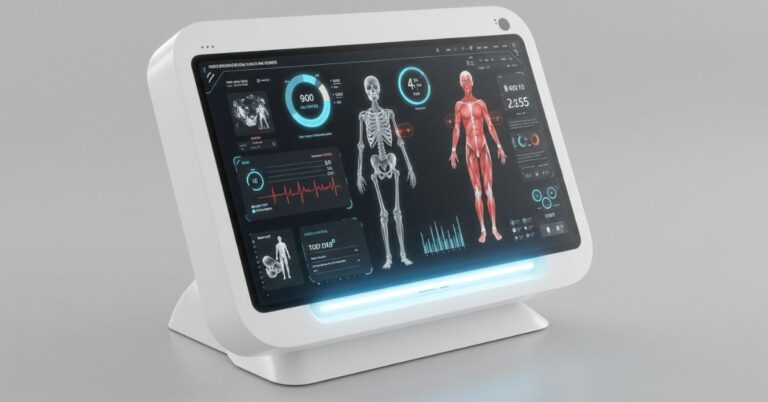Pimples are often seen as a normal part of life, particularly during adolescence.
However, persistent or severe breakouts can sometimes signal underlying health issues that need attention.
While most pimples are caused by clogged pores, excess oil, and bacteria, other factors, such as hormonal imbalances, stress, or diet, can also contribute to skin problems.
Understanding when pimples might indicate something more serious is crucial for maintaining overall health.
Top Signs of Underlying Health Issues Linked To Pimples
Here are the potential underlying health issues that could be linked to pimples and how a pimple patch can be part of your skincare routine.
1. Hormonal Imbalances and Pimples
Hormonal fluctuations are one of the most common causes of pimples, especially in women. These fluctuations can be due to various factors, including menstrual cycles, pregnancy, menopause, and conditions like polycystic ovary syndrome (PCOS). Hormones such as androgens can cause the sebaceous glands to produce excess oil, leading to clogged pores and breakouts.
If your pimples are mainly concentrated around the jawline, chin, and neck and seem to flare up during specific times in your menstrual cycle, hormonal imbalances might be the cause. Managing these types of breakouts can be challenging, but incorporating a pimple patch into your routine can help. The pimple patch works by absorbing excess oil and bacteria from the affected area, reducing inflammation and speeding up the healing process. While it won’t address the underlying hormonal issues, it can help manage the symptoms and keep your skin looking clearer.
2. Digestive Health and Skin Issues
Your digestive health plays a significant role in the condition of your skin. Poor digestion, food intolerances, and gut imbalances can lead to systemic inflammation, manifesting as pimples on your face or body. For example, some people experience breakouts after consuming dairy products, gluten, or sugar, indicating a possible food intolerance or sensitivity.
If you notice a correlation between your diet and the appearance of pimples, it might be worth exploring potential food triggers.
Keeping a food diary and noting when breakouts occur can help identify patterns. While dietary changes can take time to show results, using a pimple patch can offer immediate relief from breakouts caused by digestive issues. The patch not only treats existing pimples but also protects the skin from further irritation, giving your skin a chance to heal while you address the root cause.
3. Stress and Pimples
Stress is a well-known trigger for pimples, as it can cause the body to produce more cortisol, a hormone that increases oil production in the skin. Chronic stress can exacerbate acne by disrupting the balance of hormones and leading to inflammation throughout the body.
If you find that your skin tends to break out during periods of high stress, it’s important to develop coping mechanisms such as exercise, meditation, or other stress-relief techniques. In the meantime, applying a pimple patch can help manage stress-related breakouts. The patch reduces redness and inflammation, allowing you to focus on managing your stress without worrying about worsening pimples.
4. Skin Conditions and Chronic Pimples
Chronic pimples may sometimes indicate a more serious skin condition, such as cystic acne or rosacea. These conditions require more than just over-the-counter treatments and often necessitate a visit to a dermatologist. Cystic acne, for instance, is characterized by deep, painful pimples that don’t come to a head, while rosacea can cause red, inflamed skin that resembles acne but requires different treatment.
If you suspect that your pimples are part of a chronic skin condition, seeking professional advice is essential. While waiting for your dermatologist appointment, a pimple patch can help reduce the severity of individual breakouts and provide some relief. However, it’s crucial to follow the guidance of a healthcare professional for long-term management.
5. Underlying Medical Conditions
In rare cases, persistent pimples could indicate a more serious underlying medical condition, such as an endocrine disorder or a compromised immune system. Conditions like Cushing’s syndrome, which involves excessive cortisol production, can lead to severe acne. Certain medications or treatments that affect hormone levels or the immune system might also cause breakouts.
If you have unexplained, persistent pimples along with other symptoms such as fatigue, weight changes, or irregular periods, it might be worth discussing these symptoms with your doctor. Early detection and treatment of underlying medical conditions can improve your overall health and skin condition. While addressing the medical cause, using a pimple patch can help manage the visible symptoms on your skin.
Conclusion
While pimples are often seen as a minor skin issue, they can sometimes indicate an underlying health problem. Whether it’s hormonal imbalances, digestive issues, stress, chronic skin conditions, or more serious medical concerns, understanding the root cause of your pimples is key to effective treatment. Incorporating a pimple patch into your skincare routine offers a practical solution for managing breakouts while you explore and address any potential underlying health issues. You can achieve clearer skin and better overall health by staying informed and proactive.



